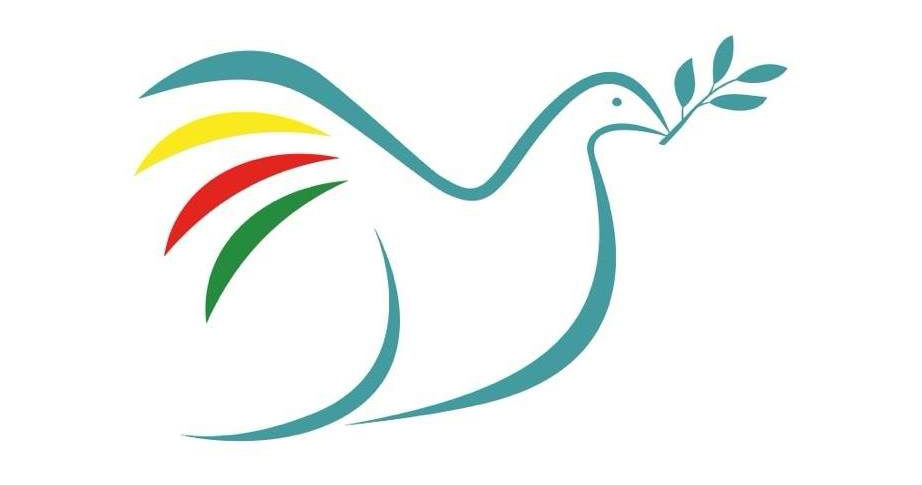A public forum called by Peace in Kurdistan, Campaign Against Criminalising Communities (CAMPACC), London Kurdish Solidarity (LKS) and Democratic Kurdish Peoples Assembly UK.
Date: Monday, 29 April 6pm
Venue: Unite House, 128 Theobald Road, Holborn, London WC1X 8TN
Erdoğan suffered a massive defeat during Turkey’s recent local elections, losing both his strongholds in Ankara and Istanbul as well as suffering defeats across the Kurdish regions with people rejecting the kayuums – ‘trustees’ that he’d imposed there. These defeats took place against a backdrop of massive repression including the detention of hundreds of politicians and journalists who are in prison and a tamed mainstream media that is almost entirely pro-Erdoğan.
Now, in five Kurdish regions the Supreme Board of Elections is changing the election results. The board, having agreed candidates who were eligible to run, is now refusing to allow elected Kurdish politicians the certificates they need to take office. Instead, the contested offices are being handed to Erdoğan’s AKP party. These and other decisions have led the HDP to say that the board “is not an independent and impartial institution to ensure the safety of elections”. Meanwhile in Istanbul, Erdoğan is still contesting the result.
But whatever comes next also depends on what happens to Kurdish leader Abdullah Öcalan who remains detained in aggravated isolation in İmralı prison.
The election took place as thousands of people, the majority of them political prisoners, took part in a hunger strike calling for the end of his isolation – demanding Turkey respect its own laws in allowing Öcalan access to his lawyers and family visits.
The hunger strike was started by HDP deputy Leyla Güven on 7 November 2018 and is now on its 168th day. Her health and the health of the other hunger strikers is critical and deteriorating by the hour.
Öcalan is central to achieving peace in Turkey. He was the chief negotiator in the Kurdish Peace Process between 2013-2015 and ending his isolation will not only end the hunger strikes but will be a step in reopening the peace process and democratic dialogue between the parties.
The discussion will be moderated by Dr. Thomas Jeffrey Miley and will include contributions from members of the UK delegation who observed the elections in the Kurdish regions of Turkey. The delegation consisted of journalists and academics – one of whom was deported and banned from Turkey and another threatened with deportation.
Dr. Thomas Jeffrey Miley is a Lecturer of Political Sociology at the University of Cambridge. He is a member of the executive board of the European Union Turkey Civic Commission (EUTCC) and is a patron of Peace in Kurdistan. His scholarship focuses on comparative nationalisms, religion and politics, and empirical democratic theory. He has published broadly on the dynamics of nationalist conflict and accommodation in Spain and, increasingly, in Turkey. He is co-editor, with Federico Venturini, of Your Freedom and Mine: Abdullah Ocalan and the Kurdish Question in Erdogan’s Turkey (Montreal: Black Rose Books, 2018). He is currently working on a project on struggles for self-determination in the twenty-first century.
Speakers include
Emily Apple is a journalist and editor of The Canary. She is also an activist involved in civil liberties and anti-militarist struggles. She helped found the Network for Police Monitoring and is a core participant in the Undercover Policing Inquiry. She first went to Kurdistan in 2011 to observe the general election. And has observed two subsequent elections in June 2018 as well as the most recent local election. She writes on a variety of issues, including the Kurdish struggle, the arms trade, civil liberties and policing.
Thomas Phillips is a lecturer/senior lecturer in law at Liverpool John Moores University. He has been involved in the Kurdish movement as an activist for several years and has visited Kurdistan four times, including Erbil, Sulaimani, Sirnak and Amed. He has written articles for a range of Kurdish news outlets as well as academic publications. He specialises in international law, human rights, and Kurdish studies. Thomas is currently writing-up his PhD thesis, which concerns the right of self-determination and the Kurds in Turkey with a particular focus on autonomy, language rights, and recognition.
Steve Sweeney is International Editor for the Morning Star newspaper. He has travelled extensively throughout Turkey and Kurdistan and reported from many political trials and elections. Steve has written a breath of work on Kurdish issues and has spoken at many meetings on his experiences including a European Parliament session on Press Freedom and Democracy in Turkey. He was recently detained, interrogated, deported and banned from Turkey after he went to cover the recent elections. Steve is the author of a forthcoming book on the HDP and Figen Yuksedag and is the founder of the new Journalists for Democracy in Turkey and Kurdistan initiative.
Links for further information:
Letter from MPs on hunger strike – http://en.hdpeurope.com/?p=3774
Repression of Kurdish journalists – https://morningstaronline.co.uk/article/w/kurdish-journalists-day-marked-with-pledge-to-never-give-up-chasing-the-truth
Fight for Istanbul still not over – https://www.theguardian.com/world/2019/apr/22/its-clear-we-won-istanbuls-new-mayor-keen-to-start-work
Supreme Board of Elections overturning HDP victories – https://www.hdp.org.tr/en/english/statements/the-akp-mhp-coalition-is-reversing-election-results-through-district-province-and-the-supreme-board-of-elections/13065
For information contact:
Peace in Kurdistan
Campaign for a political solution of the Kurdish Question
Email: estella24@tiscali.co.uk
